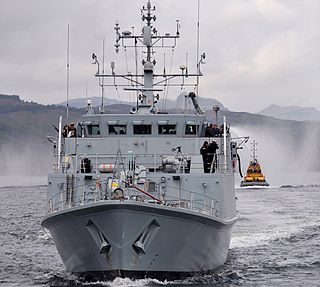Related Research Articles
Five ships of the Royal Navy have borne the name HMS Ark Royal:
Six ships that were built for the Royal Navy have borne the name HMS Ocean. The name Ocean entered the list from which names are selected for British ships in 1759, when the Royal Navy captured the French ship named Océan. The British studied the French technology of this ship and admired it, but the ship had to be in bad shape before it would be replaced by a new-build.
Ten ships of the Royal Navy have been named HMS Hermes, after Hermes, the messenger god of Greek mythology, while another was planned:
Seven ships of the Royal Navy have been named Warspite. The origins of the name are unclear, although it is probably from the Elizabethan-era spelling of the word 'spite' – 'spight' – in part embodying contempt for the Navy's enemies, but which was also the common name for the green woodpecker, suggesting the 'Warspight' would poke holes in enemy ships' (wooden) hulls. Until 1919 a woodpecker was used as the ships' crest; the official badge was a cannon, although the woodpecker continued to be used on the ships' tompions or gun muzzle plugs. Warspite carries the most battle honours of any ship in the Royal Navy, with the sixth Warspite being awarded fifteen of them.
Seven ships of the Royal Navy have been named HMS Monmouth. Monmouth was the name of a castle and is now the name of a town in Wales; the name also recognises James Scott, 1st Duke of Monmouth, the "Black Duke".
Nine ships of the Royal Navy have been named HMS Glasgow after the Scottish city of Glasgow:
At least five ships and one shore establishment of the Royal Navy have been named HMS Warrior:
Six ships of the Royal Navy have been named HMS Edinburgh, for the Scottish city of Edinburgh. In addition, one ship of the Royal Navy has carried the similar name HMS Duke of Edinburgh.
Six ships and a shore establishment of the Royal Navy have been named HMS Europa, after the Greek mythological character Europa.
At least six vessels of the British Royal Navy have been named HMS Decoy.

The Sandown class is a class of fifteen minehunters built primarily for the Royal Navy by Vosper Thornycroft. The Sandown class also serve with the Royal Saudi Navy and the Estonian Navy. The first vessel was commissioned into Royal Navy service on 9 June 1989 and all the British ships are named after coastal towns and cities. They have a secondary role as offshore patrol vessels.

The first USS Meade (DD-274) was a Clemson-class destroyer in the United States Navy and transferred to the Royal Navy as HMS Ramsey (G60).
USS Meade may refer to the following ships of the United States Navy:
Five ships of the Royal Navy have been called HMS Alderney, named after the Island of Alderney.

HMS Ramsey is a Sandown-class minehunter of the British Royal Navy. Like other vessels of the Sandown class, Ramsey was built of glass-reinforced plastic and other non-magnetic materials so that her hull does not trigger naval mines as easily as standard warships.

HMS Blyth is a Sandown-class minehunter formerly of the British Royal Navy. She is the second vessel to bear the name. The first being a Bangor-class minesweeper of the Second World War, pennant number J15. The vessel served in the Middle East as part of the 9th Mine Countermeasures Squadron. In 2021, the minehunter was decommissioned and following a refit, will be transferred to the Ukrainian Navy.
Two ships of the Royal Navy have been named HMS Blyth
PNS Babur may refer to one of these ships of the Pakistan Navy:
HMS Gardiner (K478) was a British Captain-class frigate of the Royal Navy in commission during World War II. Originally constructed as the United States Navy Evarts-class destroyer escort USS O'Toole (DE-274), she served in the Royal Navy from 1943 to 1946.
Two ships of the Royal Australian Navy (RAN) have been named HMAS Supply. Named for HMS Supply armed tender that was part of First Fleet.
References
- ↑ McRoberts, Ally. "Rosyth: Royal Navy mine hunters decommissioned at dockyard". Dunfermline Press. Retrieved 21 August 2021.